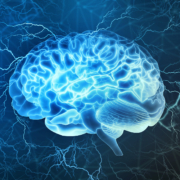The connection between nutrition and brain health
You’ve probably heard the saying, “You are what you eat.”
Some brain scientists like to riff on this trope with a more brain-specific version: “Your brain is what you eat.” It’s not so far-fetched; there are serious connections between nutrition and brain health.
We’ve compiled some of these connections in a quick tips video on the subject. The video can be found on the new Brain Health Hub section of the NAN website.
In a nutshell (see what we did there?), healthy nutrition habits can help us to stay fit, and certain diets are especially good for brain health. These include the Mediterranean, MIND, and DASH diets. All three diets include whole grains, olive oil, beans, nuts, vegetables, and fruits, and moderate amounts of fish and dairy products.
In contrast, diets that are high in unhealthy oils and fats, refined sugar, and processed foods could lead to excessive weight, inflammation, and declining brain health.
You might wonder how consistent you need to be about your eating habits, but you can get brain health benefits by following these diets even part of the time. Some research has shown that people who followed the Mediterranean and MIND diets at least moderately well could lower their risk of Alzheimer’s disease.
The best protection comes from continuing to follow these diets regularly over time.
New research into the intersection of nutrition and brain health has focused on gut microbes—tiny organisms in the digestive system which can possibly be helpful or harmful for brain health. While future studies may find medications or supplements that might be helpful here, we don’t know enough yet to make strong recommendations.
As you consider how you can embrace better nutrition to spark better brain health, remember to be careful; it’s always important to discuss any significant dietary changes with your healthcare team.









